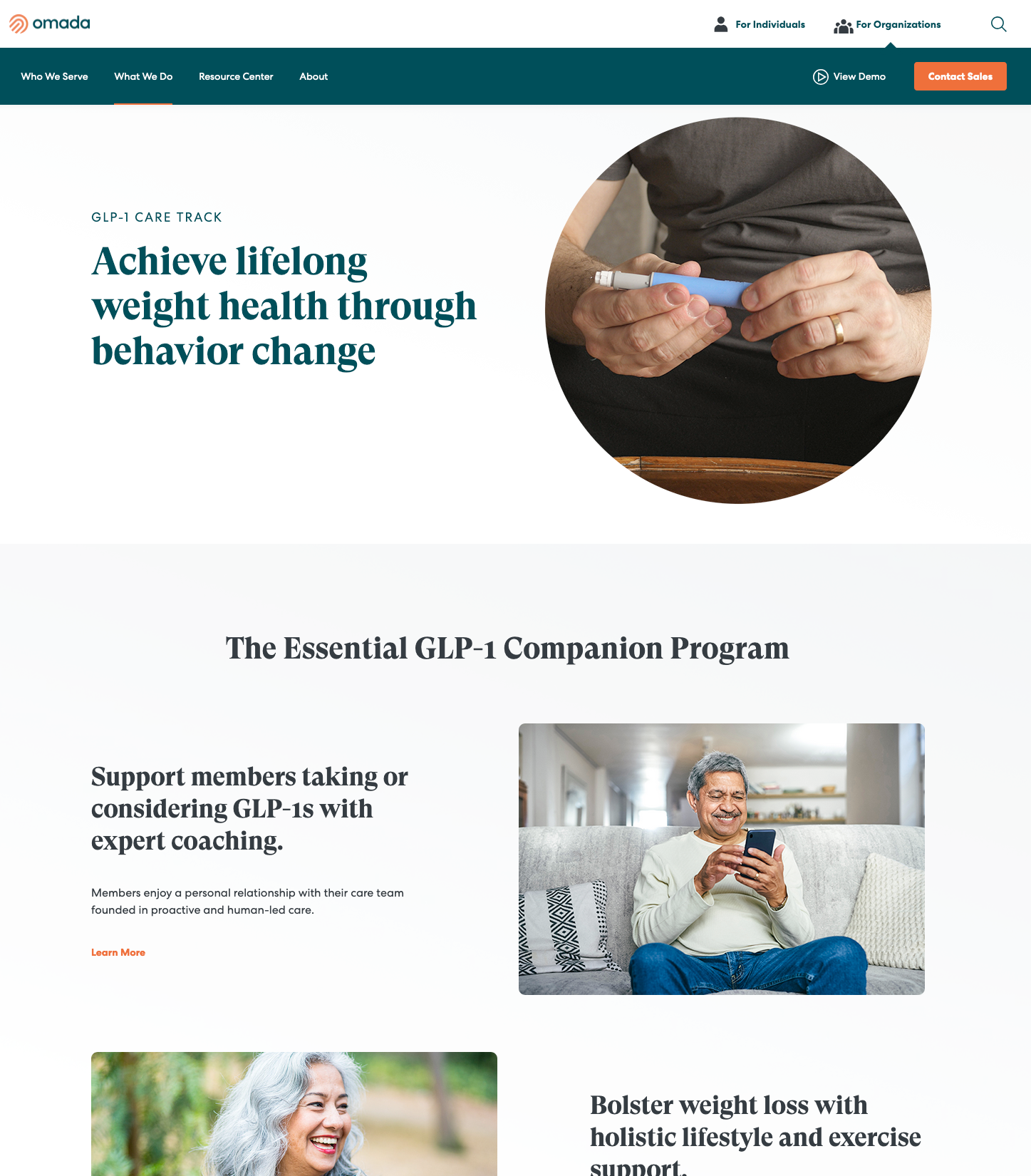Insurers continue to embrace Virtual Healthcare for GLP1s
Omada is moving from virtual health into the wider field of wellness programs, enhancing their offering. We dig into what's changed.

At GLP1 Guide, we emphasize the importance of consulting your primary care physician and relevant medical professionals before starting any treatment plans, GLP1 or otherwise.
While the doctor's office is still a sensible path, these days it's much more common for people to find their way to a GLP1 prescription via a Virtual Telehealth provider.
One such provider, Omada has recently made news by increasing their offerings to try and offer more than just advice & prescriptions:

Insurance is still the cheapest way for people to get GLP1s
We've covered it in the past, but the cheapest ways people are finding their ways to GLP1s are research studies and insurance programs:

Until the production of more generics and new formulations or some other change in the competitive landscape, the uninsured cost of GLP1 treatments is still out of reach for the average person.
This means that health care providers chosen by insurance programs are crucial to determining the kind of availability and the services that those who choose to use GLP-1 Receptor Agonists will see and use.
How has Omada's service evolved?
Omada is trying to do more – by positioning themselves as primarily a GLP-1 companion program, and trying to bring a wholistic approach and additional services to a GLP-1 regimen.

Omada is seeking to provide services akin to a company like WeightWatchers – adding on to their offerings to assist people who are already served by virtual care.
One of the interesting things about Omada is that they offer support with common GLP1 pain points, such as getting off the drugs:
The newly expanded GLP-1 Care Track provides tailored exercise plans, support for getting off of GLP-1s and calorie tracking. This kind of support is needed because muscle health is vital to maintaining weight loss, according to Wei-Li Shao, president at Omada Health.
While it's hard to say for sure that Omada will be able to compete with the other options in the space (and how well they'll be able to compete), it's interesting to see the evolution of the services it offers.
An under-discussed side of the industry is also the integration of virtual healthcare with corporations. Omada is also focusing on organizations:

So are in-person doctor visits now unnecessary?
Of course not. Omada themselves market their product as "Between-visit Virtual Care".
Most virtual healthcare providers would never presume to replace visits to your primary care physician, but instead seek to augment or enhance wellness (and realistically, provide prescriptions for GLP-1s).
During COVID, there was a chance for TeleHealth to be widely used, and research was published on it's usefulness, pitfalls, and comparison to traditional approaches:

Both in-person and telehealth visit scores during the COVID era were significantly higher than pre-COVID in-person visits (mean LTR: 9.64 p < 0.001 for both comparisons). When comparing telehealth vs in-person visits, there were no differences when separately examining new patient visits; no differences were detected in scores between pre-COVID and COVID era for new patients. Results for clinic LTR were comparable to those for provider LTR.
While experiences (measured via survey) were similar between in-person visits and TeleHealth, there is no measurement of treatment outcomes or quality of care in that research for good reason – it is fiendishly hard to collect that sort of information at a large scale.
Until we live in a world where comprehensive and individually catered care can be provided via the internet, Doctors are still obviously one of the most important links in the healthcare chain.
The treatment may be easy, but new habits are hard.
In the past we've worked to dispel the misconception that most people "bounce back" or regain weight lost on GLP-1 Receptor agonists:

But that said, building new lifestyle and particularly eating habits are hard, at any phase in life.
With this lens, it follows that companies move into the space previously occupied by not-quite-healthcare companies – trying to help people build habits, and increasing the effects of already effective medicine.
The race is on for this new breed of healthcare providers to offer something more than simply prescription at the click of a button – helping virtual patients enhance weight loss in the real world is a must.









